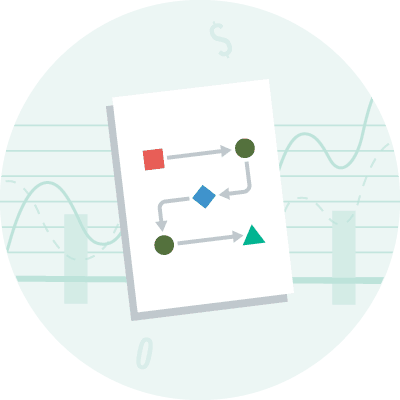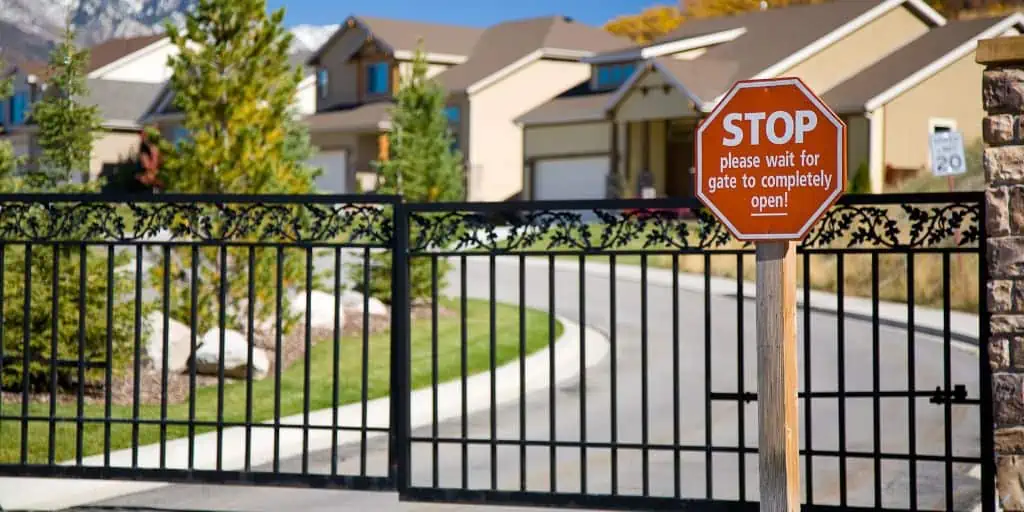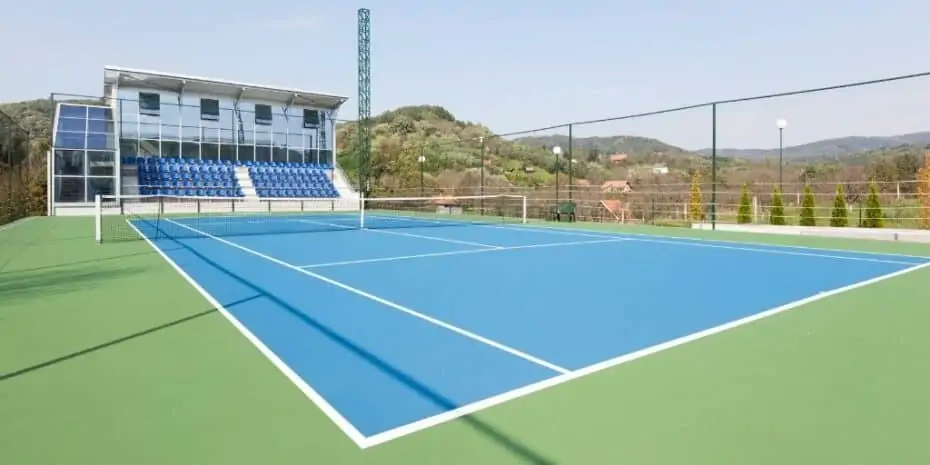What Is a Homeowners' Association (HOA)?
REtipster does not provide legal advice. The information in this article can be impacted by many unique variables. Always consult with a qualified legal professional before taking action.
Shortcuts
- Homeowners’ associations, or HOAs, are self-regulating, self-managed non-profit organizations that manage and maintain a certain community.
- In return, homeowners pay recurring HOA fees for the upkeep of common amenities and services that all members can access and enjoy.
- About a quarter of all American homes are under the HOA model, with the homeowners themselves having conflicting opinions on its usefulness.
- HOAs enshrine their rules in bylaws, which can be enforceable in court.
What Is the Purpose of a Homeowners' Association?
The purpose of a homeowners’ association is to manage common property in the community, provide services to and host social events for its residents, and develop rules and implement them across its jurisdiction, typically to protect property values.
An HOA is a non-profit, voluntary association that the developer of a master-planned community usually creates even before the first house is sold. They appoint the HOA board and ultimately leave the care and maintenance of the community to its HOA[1]. After the developer exits, the HOA can be independent, and homeowners are free to elect members of the HOA board.
The HOA concept was originally conceived to market and sell homes. Today, there are 63 million people living under a community association, which includes an HOA. This is an estimated 24% of all homes in the U.S.[2]
Among the goals of an HOA is the implementation of community rules, known as covenants, conditions, and restrictions (CC&R). These rules are to preserve, maintain, and enhance the properties in a community while keeping it orderly and peaceful. It also collects HOA fees, used to take care of common areas in a community to benefit all homeowners.
Ultimately, HOAs enforce rules concerning properties. Examples of issues falling under the HOA’s jurisdiction include[3]:
- Landscaping.
- Architectural and design controls.
- Home maintenance standards.
- Policies on noise complaints.
- Disputes between homeowners.
- Limits to home occupancy.
- Vehicle parking regulations.
- Pet ownership (type, breed, size, and quantity).
- Rules on Airbnb and short-term rentals.
- Garbage disposal and recycling.
How Does HOA Membership Work?
Membership to an HOA begins once someone purchases property within a cluster of apartments, condos, townhouse complexes, or gated communities. Upon becoming a member, a homeowner must follow the HOA rules and contribute to an HOA fund through a recurring HOA fee.
HOA members can volunteer to join the Board of Directors in making decisions when dealing with maintenance issues, addressing members’ complaints, and handling the community’s finances. These decisions—which can impact the value of the property—are made according to rules. These rules limit what the HOA can do concerning the community and its properties and ensure a cohesive atmosphere throughout the neighborhood.
The HOA also takes care of maintenance, insurance, repairs, landscaping, and other issues, sparing individual homeowners from several responsibilities they would have to do alone otherwise. HOA fees cover some running costs as well, even though board members may volunteer their services.
Voluntary vs. Involuntary HOAs
A homeowner automatically becomes a member of the HOA when they purchase a home, and they sign a contract for their membership to the association. Most HOAs operate under this type (an involuntary HOA).
However, some HOAs called “voluntary HOAs,” allow homeowners the choice of whether to sign an HOA membership agreement or not[4]. And even if they do, homeowners can also opt out anytime. As a result, the HOA cannot enforce rules or take action against homeowners who have not signed or opted out of the contract.
Voluntary HOAs function identically to involuntary ones. A homeowner who opted out of the contract or did not sign it forfeits access to the amenities and other conveniences that the HOA offers.
What Do HOAs Pay For?
Homeowners’ Associations (HOAs) play a pivotal role in maintaining the quality and standards of a residential community. They are responsible for a variety of expenses:
- Common Area Maintenance: This includes landscaping, cleaning, and upkeep of shared spaces like parks, clubhouses, and swimming pools.
- Utilities for shared spaces: HOAs pay for water, electricity, and other utilities in common areas.
- Building maintenance: They are responsible for repairs and maintenance of exteriors, roofs, and other structural elements of community buildings.
- Community services: These can include trash removal, snow plowing, and sometimes even security services.
- Insurance: HOAs often procure insurance for common areas, protecting against damages and liability.
- Legal and administrative expenses: These include costs related to enforcing community rules, resolving disputes, and managing the HOA’s operations.
Getting Rid of an HOA
Dissolving an HOA requires a majority vote from the homeowners, as outlined in the association’s governing documents.
The process involves legal steps, including consulting with an attorney to understand state laws and regulations. Homeowners must hold a vote, adhering to the procedures specified in the HOA’s bylaws. If the vote is successful, legal documentation to officially dissolve the HOA must be filed with the appropriate state authorities.
That said, homeowners should address property management issues, like maintenance and rule enforcement, post-dissolution. They should also be aware that dissolving an HOA can impact property values and community standards.
Note that membership in an HOA is tied to owning the property that belongs in a homeowners’ association. If the rules do not suit you, many experts advise taking part in the governance of the HOA by running for a position on the HOA board, or simply just being participating in meetings, instead of holding a vote to dissolve it.
Pros and Cons of an HOA
Some people may like the uniformity, consistency, and security of a neighborhood with an HOA, but some view HOAs as oppressive and restrictive. HOA rules vary by neighborhood and its board, but generally, there are some advantages and disadvantages common to all HOAs.
Below is a comparison of its pros and cons.
PROS:
- It keeps property values high. Houses and properties with HOAs generally have higher curb appeal than those without. As a result, HOA neighborhoods tend to fetch high prices when listed on the market—at about 5% to 6% higher[5]. Without an HOA, homeowners could make changes on their property that may not exactly fit the rest of the neighborhood.
- Access to amenities. HOA-maintained communities have access to amenities that other areas do not typically have and are open for all HOA members. These include pools, athletic courts, gyms, parks, even daycare centers and playgrounds for children.
- Greater convenience. HOAs often contract third-party professionals to care for common areas, such as entryways and hallways in a condo or an apartment. They may also take care of garbage disposal and recycling. Note that for homes in a master-planned community with detached homes, the owner has to take care of their own lawn, but the HOA may dictate lawn care standards.
- Utilities. Some HOAs, especially in condominiums, “bundle” utility payments with the HOA fees. This makes it easy for owners, as they only need to pay a one-time fee for utility bills (such as electricity, gas, and water).
- Community spirit. HOAs often make meeting other owners and neighbors easy and natural, as there will always be social opportunities to mingle with others. HOAs often hold events as well.
CONS:
- HOA fees. Fees can vary from property to property and HOA to HOA. Properties located in upscale neighborhoods, for instance, will have higher fees, as well as those with more amenities and perks (like a golf course). HOAs are not static; they may change yearly depending on the needs of the HOA. Finally, late payment of fees may result in fines, whereas some HOAs have the authority to attach a lien to your property and foreclose it, if applicable[6].
- Poor management. Elected board members may not always be capable or have the community’s best interests at heart. As HOAs are self-regulating, embezzlement of HOA funds may sometimes occur without the knowledge of homeowners[7].
- Overzealous HOA. Some HOAs micromanage their members, creating a restrictive environment. This atmosphere may create highly structured HOA neighborhoods and complicated rules that can stifle homeowners’ creativity and unique personality.
Sources
- Goonan, D. (2016.) HOMEOWNERS FIGHT HOA DEVELOPERS STILL IN CONTROL OF COMMUNITIES. Independent American Communities. Retrieved from https://independentamericancommunities.com/2016/09/11/homeowners-fight-hoa-developers-still-in-control-of-communities/
- IKO Community Management. (2019.) 13 Statistics About HOA Communities That’ll Make You Proud. Retrieved from https://www.ikocommunitymanagement.com/blog/13-statistics-about-hoa-communities-thatll-make-you-proud
- Associa. (n.d.) HOA 101: Rules & Regulations. Retrieved from https://hub.associaonline.com/blog/hoa-101-rules-regulations
- Spectrum Association Management. (n.d.) Are HOAs Voluntary? Retrieved from https://spectrumam.com/voluntary-hoa/
- Agan, A., Tabarrok, A. (2005.) What Are Private Governments Worth? George Mason University. Retrieved from https://www.cato.org/sites/cato.org/files/serials/files/regulation/2005/9/v28n3-2.pdf
- Moore, C. (n.d.) Important Facts About HOA Liens & Foreclosures You Should Know. Homeowners Protection Bureau. Retrieved from https://www.hopb.co/blog/understanding-hoa-liens-and-foreclosures
- Hovland Forensic. (n.d.) HOW TO RECOGNIZE HOA EMBEZZLEMENT. Retrieved from https://hovlandforensic.com/hoa-embezzlement/












